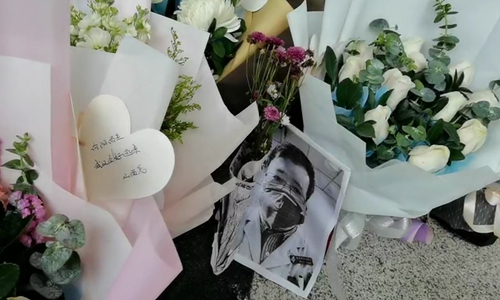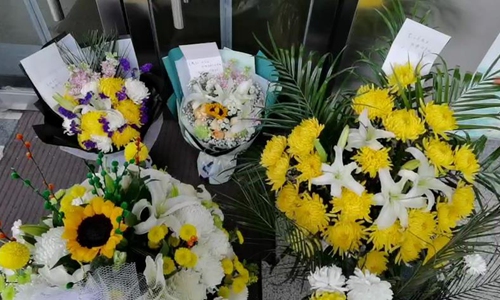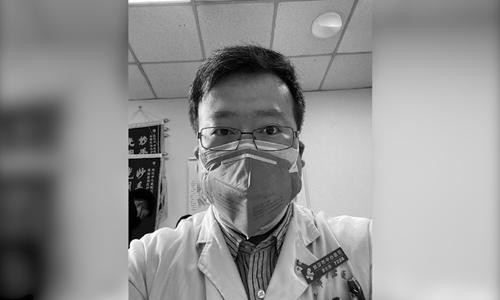HOME >> CHINA
Supervisory body begins probe after doctor's death amid public indignation
By Chen Qingqing Source:Global Times Published: 2020/2/7 13:22:10

Photo:Global Times
The death of coronavirus doctor Li Wenliang has ignited an outpour of public outrage in Chinese society, as many have criticized formalism and excessive bureaucracy in local governance. A top supervisory commission has sent a team to Wuhan, Central China’s Hubei Province, to investigate the matter.
Chinese doctor Li Wenliang, one of the eight "whistleblowers" who attempted to warn other medics of the coronavirus outbreak but were reprimanded by local police, died as a result of the coronavirus infection early on Friday, the hospital where he received treatment announced.
Wuhan Central Hospital released on its Sina Weibo account that Li had passed away at 2:58 am on Friday following emergency treatment.
On Chinese social media, Li's death has led to outpouring of grief and anger. Many paid respect to his integrity and honesty, hailing him as a heroic whistleblower who tried to save lives from the infectious disease. Many said that local authorities owe him an apology for reprimanding him and saying he spread "rumors" - which transpired to be a warning which could have helped the country avoid a huge public health crisis.

Photo:Global Times
Li received emergency ECMO (extra-corporeal membrane oxygenation) treatment after his heart stopped beating at around 9:30 pm on Thursday, according to media reports.
People are grieving and furious, and have begun raising questions about why the hospital gave him emergency treatment for an excessive five hours after his heart had stopped beating.
"Tonight, social consensus has collapsed," a veteran social affairs observer surnamed Huang said in a WeChat post. The public is demanding justice for authorities in Wuhan, including apologies from local authorities for Li and thousands of patients infected with the coronavirus, she said.
The battle against the deadly virus should be fact-driven and should prioritize the interests of the people. The first thing that should be done is addressing the public outrage, observers said.

Photo:Web
In response to the unprecedented public opinion crisis, China's Supervisory Commission is sending a team to Wuhan, the epicenter of the outbreak, to investigate matters related to Li, according to a statement issued on Friday morning. The decision was met with applause from some netizens, who said they are pleased to see the central government probe this matter.
Insufficient understanding of the seriousness of the situation at the early stage led to the improper handling of the matter by local authorities, analysts said. As the epidemic develops, local government was still failing to keep up with the situation and has not adopted a scientific, practical and fact-based attitude to deal with it, which is very alarming, they said.
"I hope Li's story and the public outcry triggered by his death will make people understand that excessive bureaucracy will eventually lead to public opinion crises or the crises concerning people's livelihood," said a Beijing-based journalist surnamed Bai, who noted that hopefully Li's death has sounded an alarm for Chinese society.
Posted in: SOCIETY